NeuronUP Labs
List of research with NeuronUP
At NeuronUP Labs we are interested in lines of research that increase technological innovation at NeuronUP, providing a solid foundation for scientific advancement in the field of cognitive stimulation and rehabilitation.
Published research articles
The NeuronUP platform as a research tool is present in different projects.

Sant Joan de Déu Terres de Lleida, Hospital of Lleida
RCT. Combining mindfulness and cognitive training in children with attention deficit hyperactivity disorder: study protocol of a pilot randomized controlled trial (the NeuroMind study).
Tania Badia-Aguarón, Estíbaliz Royuela-Colomer, Vanessa Pera-Guardiola, Pere Vergés-Balasch, Ausiàs Cebolla, Juan V. Luciano, Joaquim Soler, Albert Feliu-Soler
Anna Huguet Miguel
The NeuroMind study seeks to evaluate the effectiveness and feasibility of three interventions for ADHD: Mindfulness for Health (M4H), Cognitive Training (CT) with the NeuronUP platform and a combination of both (MCT). A 5-month randomized clinical trial will be conducted with 120 children with ADHD to analyze the effects of these interventions compared to treatment as usual, evaluating psychological and clinical variables. If the effectiveness of MCT is demonstrated, it could be applied in clinical practice after definitive validation.
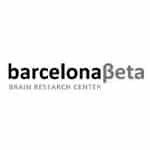
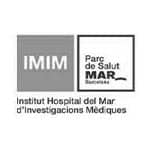
Barcelona βeta Brain Research Center (BBRC) and the Hospital del Mar Medical Research Institute (IMIM).
Intensive assessment of executive functions derived from performance in cognitive training games.
Natalia Soldevila-Domenech, Ilario De Toma, Laura Forcano, Patrícia Diaz-Pellicer, Aida Cuenca-Royo, Beatriz Fagundo, Thais Lorenzo, Maria Gomis-Gonzalez, Gonzalo Sánchez-Benavides, Karine Fauria, Carolina Sastre, Íñigo Fernandez De Piérola, José Luis Molinuevo, Antonio Verdejo-Garcia, Rafael de la Torre
PENSA Study Group
Traditional neuropsychological tests describe current cognitive state, but fail to characterize cognitive change over short periods. We present an innovative approach for monthly remote monitoring of executive functions using self-administered cognitive games (NUP-EXE). Evaluated in 56 individuals at risk for Alzheimer’s disease, NUP-EXE showed good psychometric properties and greater sensitivity to change than traditional tests, correlating improvements with functioning and being affected by participants’ age and gender.

Biomedical Engineering Group, University of Valladolid, Spain
Potential benefits of a cognitive training program in mild cognitive impairment (MCI)
Nuria Mendoza Laiz, Sagrario Del Valle Díaz, Natalia Rioja Collado, Javier Gomez-Pilar,
Roberto Hornero
Dementia is constantly evolving in older people, affecting their daily life with various symptoms. This study evaluates the effectiveness of cognitive training using a brain-computer interface and the NeuronUP platform in two age groups with mild dementia. After training, Group 1 (61-69 years) showed significant improvements in almost all variables measured, indicating that adequate cognitive training can delay cognitive decline, especially in younger people.
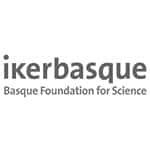
Biocruces-Bizkaia Health Research Institute, Barakaldo, Spain
Predicting cognitive decline after one year of cognitive stimulation from real data.
Borja Camino-Pontes, Francisco Gonzalez-Lopez, Gonzalo Santamaría-Gomez, Antonio Javier Sutil-Jimenez, Carolina Sastre-Barrios, Iñigo Fernandez de Pierola
Jesús M. Cortés
Clinical evidence based on real-world data is growing rapidly, allowing prediction of cognitive decline in cognitively stimulated participants. We evaluated 215 neuropsychological tests in 29 cognitive domains with 7902 participants, using machine learning techniques. Prediction accuracy varied across domains, being highest for Parkinson’s and Down syndrome, and lowest for Alzheimer’s and multiple sclerosis. Future research should combine these approaches with standard neuropsychological measures.
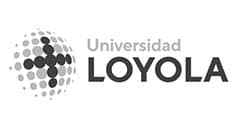
Human Neuroscience Laboratory, Department of Psychology, University of Loyola Andalucía, Spain
RCT. Neuropsychological stimulation program for children from low socioeconomic backgrounds: study protocol for a randomized controlled trial.
Pablo Rodríguez-Prieto, Ian Craig Simpson, Diego Gomez-Baya, Claudia García de la Cadena, Desirée Ruiz-Aranda
Joaquín A. Ibáñez-Alfonso
Guatemala suffers from high poverty and inequality, which, together with two years without school due to the pandemic, affects the emotional and cognitive development of children. This paper presents a protocol for a cognitive and emotional stimulation program, evaluating its effectiveness in 480 children to improve their academic performance and quality of life. The program is expected to improve cognitive and emotional development, academic performance and well-being of the participants.

Luis Amigó Catholic University, Medellín, Colombia
Effect of a neuropsychological intervention program on the development of academic skills in the early school years.
Astrid Yamile Ayala Arango
A quasi-experimental study at the Cadena Las Playas educational institution in Apartadó, Colombia, evaluated the effect of a neuropsychological intervention program on reading, writing and mathematics in low-income children aged 5 to 6 years. After seven months of intervention with NeuronUP Kids in the experimental group, significant improvements were observed in reading and writing, but not in arithmetic. The program proved to be beneficial in developing academic skills in disadvantaged environments.
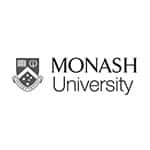
Department of Occupational Therapy, Monash University, Australia
RCT. Transcranial direct current stimulation as an adjunct to cognitive training for older adults with mild cognitive impairment: a randomized controlled trial.
Pablo Cruz Gonzalez, Kenneth N.K. Fong,
Ted Brown
Cognitive training (CT) combined with transcranial direct current stimulation (tDCS) in older adults with mild cognitive impairment (MCI) was not shown to be superior to CT alone in specific cognitive outcomes, although it had a greater effect and improved processing speed in specific tasks. In a randomized, controlled study with 67 participants, all groups improved in global cognition and everyday memory after the intervention and at 6-week follow-up.
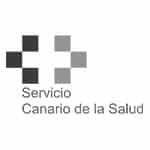
Department of Neurosurgery, University Hospital of the Canary Islands, Spain
Neuropsychological and cerebral gray matter volume changes after computer-assisted cognitive treatment in patients with multiple sclerosis
Julio Plata-Bello, María Yaiza Pérez-Martín, Montserrat González-Platas, Víctor Fajardo-Santana
Kritsia Sinay Fumero-Revetti
Cognitive impairment is common in multiple sclerosis (MS) and significantly affects quality of life. A study with 12 patients evaluated the efficacy of a computer-assisted cognitive rehabilitation therapy, showing significant improvements in verbal, visual, working memory and semantic fluency, as well as structural and functional changes in the brain. These findings suggest that cognitive treatment can induce changes in neuroplasticity and cortical reorganization.

University of Burgos
Cognitive Rehabilitation in Older Adults with NeuronUP (CROAN)
Olalla Saiz Vázquez
The application of new technologies in cognitive rehabilitation has allowed occupational therapists to work more efficiently. This study evaluated the effect of cognitive intervention using the NeuronUP platform in a group of elderly people, analyzing memory, attention and language with the abbreviated Barcelona Test. A quasi-experimental design was performed with 40 subjects, divided into control and experimental groups, evaluated before and after the intervention.

Department of Legal Medicine, Medical Ethics and Social and Occupational Medicine, School of Medicine, University of São Paulo
Persistent COVID outpatient rehabilitation: a call to action
Gilson Tanaka Shinzato, Sabrina Saemy Tome Uchiyama, Lucas Ramos De Pretto, Denise Vianna Machado Ayres, Simone Hitomi Oshiro, Valéria Dini Leite, Daniela Aguilera Moura Antonio Rossi, Harumi Nemoto Kaihami, Rosana Aparecida de Freitas Lopes, Denise Rodrigues Tsukimoto, Gabriella Souza Naves, Denise Matheus, Artur César Aquino dos Santos, Margarida Harumi Miyazaki,
Linamara Rizzo Battistella
Intensive and brief outpatient rehabilitation program developed for adults with severe and critical COVID-19 at the Institute of Physical Medicine and Rehabilitation of the Hospital das Clínicas of the University of São Paulo. The program includes multiple interventions such as magnetic stimulation, isokinetic exercises, cognitive and emotional stimulation, in addition to functional and nutritional assessments. Preliminary results show significant improvements in pain, mobility and anxiety, suggesting benefits in the rehabilitation of patients with prolonged COVID-19.


Faculty of Experimental Sciences, Francisco de Vitoria University and Beata María Ana Hospital.
RCT. Validation of Cognitive Rehabilitation as a Balance Rehabilitation Strategy in Patients with Parkinson’s Disease: Study Protocol for a Randomized Controlled Trial.
Aida Arroyo-Ferrer, Francisco José Sánchez-Cuesta, Yeray González-Zamorano, María Dolores del Castillo, Carolina Sastre-Barrios, Marcos Ríos-Lago,
Juan Pablo Romero
This study proposes a randomized controlled clinical trial to evaluate the impact of cognitive rehabilitation focused on sustained attention through the NeuronUP platform in patients with Parkinson’s disease (PD). The aim is to improve postural stability, especially in relation to cognitive problems that affect balance and increase the risk of falls in PD patients. The results could lead to new rehabilitation strategies for fall prevention, with potential to reduce morbidity and costs in the healthcare system.

Faculty of Psychology and Educational Sciences, University of Oporto
Remote neurocognitive rehabilitation during the COVID-19 pandemic: A first look at patient perspectives on the process and an online platform.
Artemisa R. Dores, Irene P. Carvalho, Sandra Guerreiro, Alexandre Castro-Caldas, Fernando Barbosa
Andreia Geraldo
This study explored the perceptions of patients with acquired neurological conditions about online neurocognitive rehabilitation during the COVID-19 pandemic. Sixteen patients participated in an online rehabilitation program in Portugal, completing a questionnaire during mandatory confinement. The results highlight the perceived advantages and limitations of remote rehabilitation services, providing suggestions for improving both the neurorehabilitation processes and the platforms used.
Collaborate with us
Access to NeuronUP Labs research tools
Would you like to have access to NeuronUP Labs research tools? Send us your research proposal, our committee will evaluate your project and, once validated, we will provide you with the most innovative tools to develop your research.